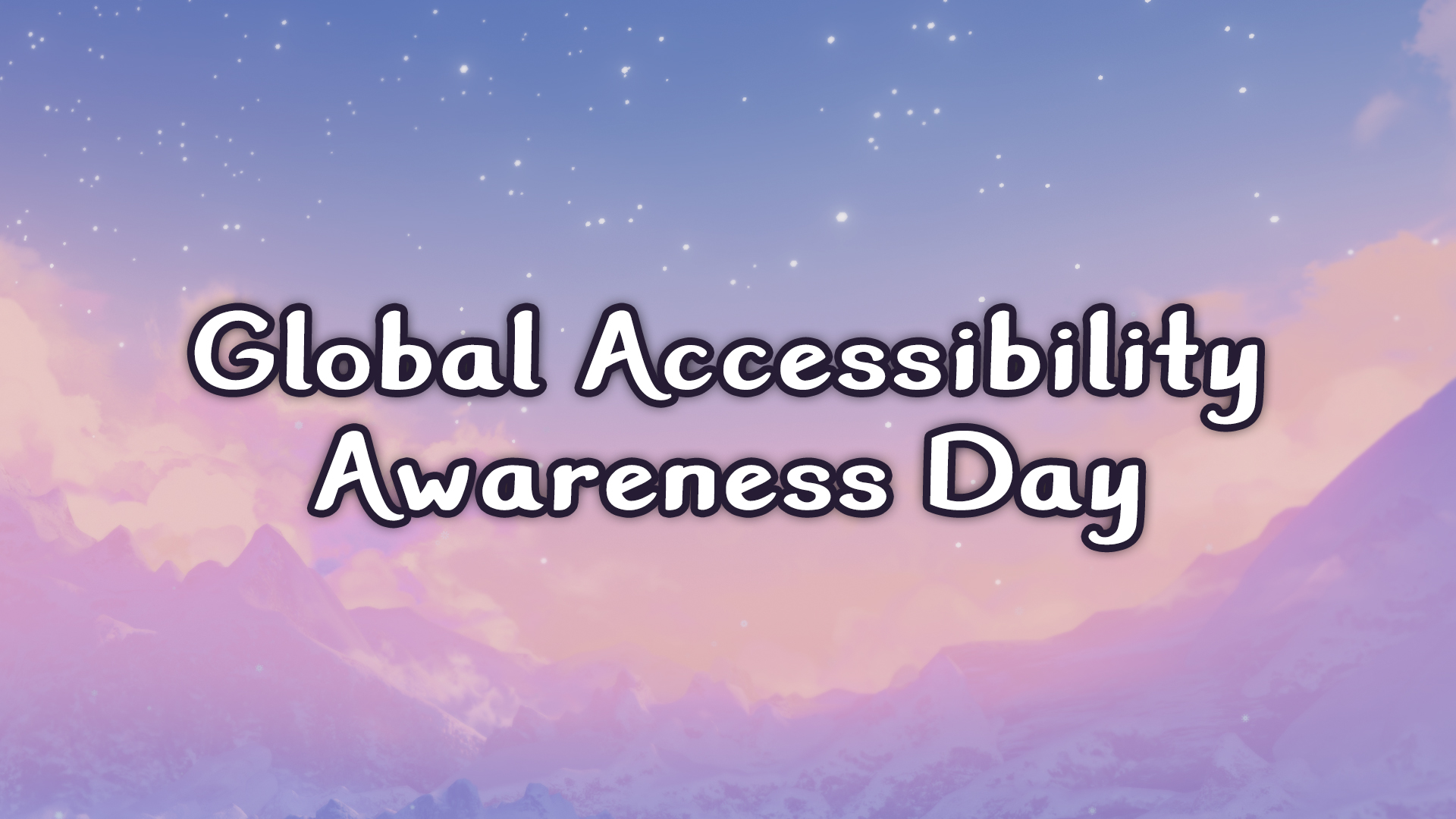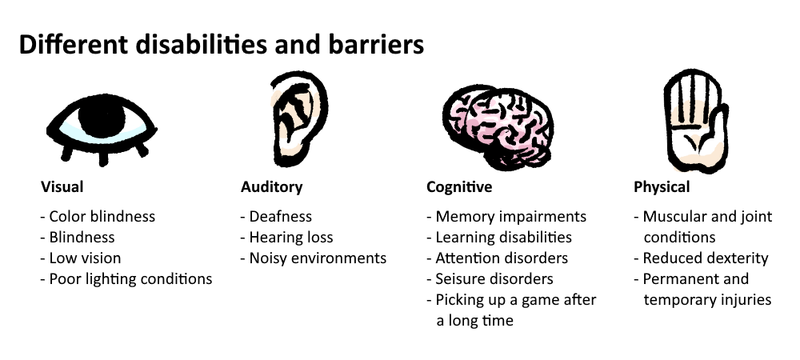Global Accessibility Awareness Day (GAAD) is on the 21st of May and we want to join others in celebrating it! What better way than by finding out how we could make our games better in terms of accessibility? And who can better tell us than you, our players?
Accessibility is sometimes harped on about as trying to make games too easy, but we don’t agree. While the point of our games is to challenge our players, they should challenge our players in ways that we intend them to. So if you love the puzzles in Trine, but just can’t see some of the important gameplay elements; you know exactly what to do in the heat of Nine Parchment’s battles, but just can’t press the buttons fast enough; or enjoy mining away in Starbase, but can’t find where to return your haul to get cash, you’re facing challenges we did not intend you to have. At it’s heart, that’s what accessibility is – lowering barriers that we do not want to be there.
Here are some of the different kinds of disabilities we try to keep in mind when making our games:
- Visual
- Color blindness
- Blindness
- Low vision
- Poor lighting conditions
- Auditory
- Deafness
- Hearing loss
- Noisy environments
- Cognitive
- Memory impairments
- Learning disabilities
- Seisure disorders
- Picking up a game after a long time
- Physical
- Muscular and joint conditions
- Reduced dexterity
- Permanent and temporary injuries
We try our best and already think about these when we make our games. Some examples we already have:
- Text: People view our games from varying distances depending on the platform they play on and the setup they have. They also have different lighting conditions, and might have impaired vision. Adjusting text size and making sure it never blends in the background is important.
- Information channels: Our games, especially in the Trineverse, are created to be very visual experiences. However, relying on visuals alone in conveying information is not ideal and when possible, we try to use other channels, such as audio, as well.
- Controls: While the default controls in any game are always designed to be good, there’s always the chance someone wants the camera to turn in a different way, or to just set up their most used actions in just the right way, while someone might not be able to play the game without a custom made controller. Being able to play games comfortably is important.
- Color blindness: This genetic condition can make it difficult to differentiate between different colors, which can make important information disappear in the background or be confused with something else.
- …and many others we might not even be aware of!
We’d love to hear what barriers you face when playing our games and what we’re already doing well in regards of helping you play in the best way possible. Specific things from our games or other’s, or general concepts and thoughts are all welcome. All of them will help us in our quest to make our games the best they can be.
Thank you, stay safe, and keep on gaming!



2 comments on “Global Accessibility Awareness Day”
I have a color blindness and would love to test your alpha, so hit me up 🙂
Hi there and thanks for your interest in Starbase Alpha! Have you filled our survey/sign up form yet? It can be found here: https://www.starbasegame.com/alpha-signup
Leave a Reply